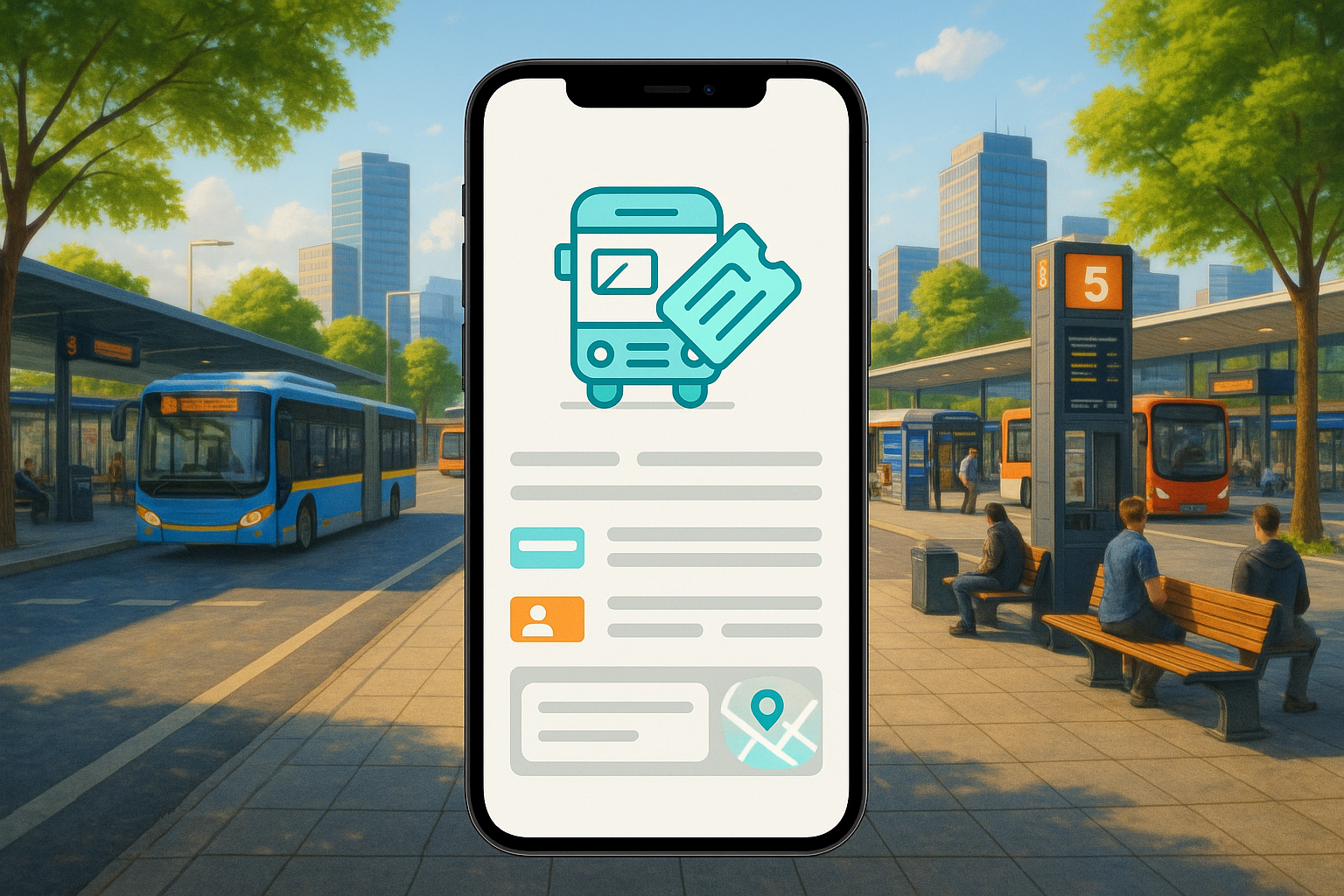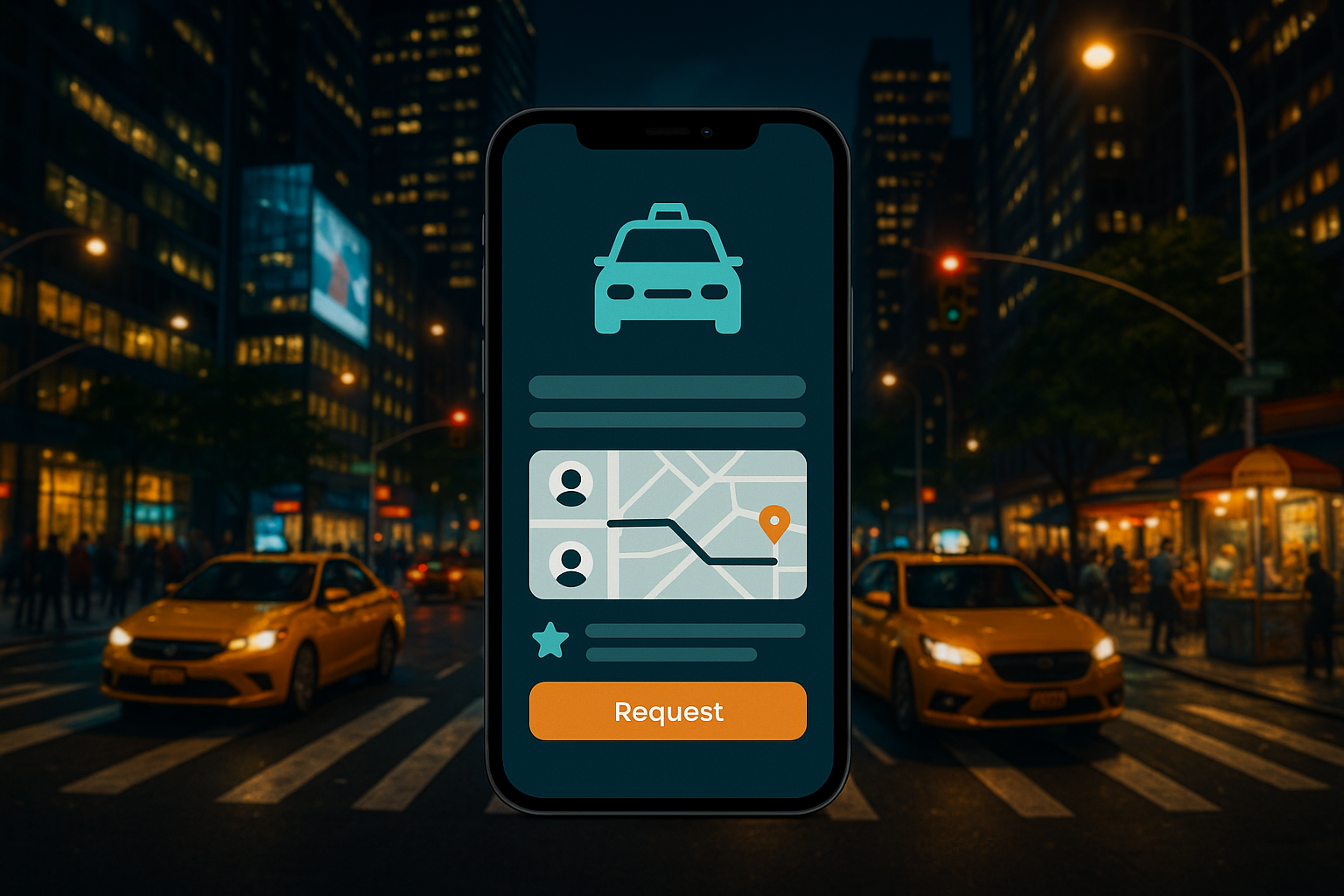In today’s competitive landscape, a custom business application is no longer a luxury—it’s a necessity for streamlining operations, engaging customers, and driving growth. However, the path from a great idea to a successful, market-ready application is littered with obstacles. Businesses often grapple with a significant skills gap, the high costs of assembling an in-house team, and the sheer complexity of modern app development. The decision to build an app can feel overwhelming, leaving many promising projects stalled before they even begin.
This article serves as your comprehensive guide to business app development. We will demystify the process, exploring what defines a business application and why developing one in-house is so challenging. We’ll delve into the various types of business apps, provide a transparent breakdown of development costs, and introduce the top development companies that can turn your vision into reality. As a top US AI-powered app development firm, we at MetaCTO have helped countless businesses navigate this journey. We understand the hurdles and have honed a process to overcome them, delivering exceptional apps that generate real-world value.
What is a Business App?
At its core, a business application is a software solution designed to support or automate specific business processes. Unlike consumer apps focused on entertainment or social networking, business apps are built with a clear purpose: to improve efficiency, enhance productivity, and help companies achieve their strategic objectives. These applications can be used across virtually every department, including finance, human resources, supply chain management, healthcare, and education.
The ultimate goal of a business app is to solve a problem or streamline a workflow. This can range from managing customer relationships and tracking inventory to automating financial reporting and facilitating project collaboration. Examples are plentiful and varied:
- Human Resources Management (HRM) Systems: Digitize and automate HR tasks.
- Customer Relationship Management (CRM) Systems: Manage interactions with current and potential customers. This includes both traditional and open-source CRM platforms.
- Supply Chain Management (SCM) Software: Oversee the flow of goods and services, from production to delivery.
- Project Management Software: Help teams plan, execute, and track projects.
- Financial Management Solutions: Manage income, expenses, and assets.
- Production Management Systems: Oversee the manufacturing process.
- Cloud ERP and BPM Software: Integrate and manage core business processes, often through cloud-based SaaS models.
The Transformative Role of Artificial Intelligence
The modern business app is increasingly intelligent. The integration of Artificial Intelligence (AI) is revolutionizing what these applications can do, empowering companies to make data-driven decisions, anticipate customer needs with stunning precision, and unlock unprecedented levels of innovation. AI enables businesses to not only streamline operations but to gain deeper insights into markets, customer behavior, and industry trends by analyzing massive datasets. This leads to higher productivity, enhanced customer satisfaction, and significant cost savings.
Consider these real-world applications of AI in business software:
- Enhanced Customer Relationship Management: AI-driven CRM tools like Salesforce Einstein analyze customer data to deliver highly personalized marketing content, boosting engagement and conversion rates. Similarly, Zendesk’s AI tools analyze support tickets to route queries efficiently and predict customer needs, dramatically reducing resolution times.
- Smarter Operations: Tools like Blue Yonder leverage AI to predict demand and optimize inventory. UiPath’s AI-driven bots automate repetitive tasks like data entry and invoice processing, freeing up employees for more strategic work.
- Predictive Analytics: Companies like General Electric apply AI-driven predictive maintenance to monitor equipment health, preventing costly downtime by predicting potential failures before they happen.
- Personalized Experiences: Netflix uses AI to analyze viewing habits and recommend content, keeping users engaged. E-commerce platforms integrate tools like Perzonalization to offer AI-driven product recommendations tailored to individual user preferences.
AI-powered development tools are also transforming the creation process itself. They can automatically generate code snippets, suggest optimizations, and even create entire application frameworks based on predefined parameters, enhancing developer productivity and reducing development time. This allows a firm like ours to build more sophisticated, powerful, and effective business applications for our clients faster than ever before.
Reasons It Is Difficult to Develop a Business App In-House
The idea of building a dedicated business application with an internal team can seem appealing. It suggests total control over the process and direct alignment with company culture. However, the reality is often far more complex and fraught with challenges that can derail projects, inflate budgets, and result in a subpar product. For most organizations, outsourcing to a specialized mobile app development agency is not just a viable alternative but a strategic necessity. Here’s why.
The Pervasive Skills Gap
The single greatest obstacle to in-house development is the talent shortage. A staggering 92% of organizations report that they do not have developers with the required skills for modern app development. Building a robust application requires more than just a general understanding of coding. It demands intricate expertise in specific coding languages and platforms.
- Platform-Specific Expertise: Developing for iOS and Android are two distinct disciplines. They require mastery of different languages (Objective-C or Swift for iOS, Java for Android) and development environments. An expert Android developer is not necessarily proficient in iOS development, and vice-versa. To build for both platforms effectively, you need different skill sets and development efforts, essentially doubling your hiring challenge.
- The Full Team: A successful app requires more than just coders. A complete internal team might consist of a mobile strategist, a UI/UX designer, multiple developers, a project manager, and a quality assurance (QA) expert. Even if a company has some of these roles filled, it will likely need to hire at least one more person to get an app built effectively.
Prohibitive Costs and Financial Risk
Assembling an expert in-house team is an expensive proposition. The costs extend far beyond salaries and create a significant financial burden, especially for a single project.
- High Salaries: A skilled mobile developer commands a six-figure salary. When you factor in the entire team—strategist, designer, PM, QA—the annual payroll commitment can become immense.
- Hidden Costs: Beyond salaries, there are substantial costs for technology, recurring software licensing fees, and developer certificates. These expenses add up quickly.
- Risk of Inefficiency: Building a mobile app in-house can be risky. The team may not be as proficient or experienced as a dedicated agency, leading to costly mistakes, delays, and a final product that fails to meet business objectives. Without specific mobility expertise, decision-makers often struggle to identify the root causes of problems, leaving the project stalled indefinitely.
Scalability and Accountability Challenges
Business needs evolve, and an application must be able to scale with them. This presents another major hurdle for in-house teams.
- Inflexible Scaling: If a project’s scope expands, you can’t just “plug in” an additional coder easily or cost-effectively. Hiring new full-time employees is a slow and expensive process, while the project timeline continues to stretch.
- Accountability Issues: When a project is managed internally, lines of accountability can become blurred. If issues arise, it can be difficult to pinpoint responsibility, leading to finger-pointing and a lack of progress.
The Strategic Advantage of Outsourcing
Leveraging IT outsourcing services provides a clear and effective solution to these challenges. Partnering with an experienced firm like MetaCTO offers numerous advantages that in-house development simply cannot match.
- Immediate Access to Expertise: An outsourced team can usually start immediately, eliminating the lengthy hiring process. You gain instant access to a well-established team with a robust working bond and deep knowledge of the required technologies. We have over 20 years of experience and have launched over 120 successful projects.
- Cost-Effectiveness: Outsourcing is a more cost-effective solution. You avoid the long-term financial commitment of full-time salaries and benefit from the agency’s existing investment in tools and technologies.
- Proven Processes and Reusable Assets: A well-versed outsourced team has an existing library of standard, tested, and optimized app features and modules. This means we don’t need to build every single feature from scratch. We can customize a proven solution, which saves a tremendous amount of time and money while ensuring high performance.
- Clear Accountability: An outsourced mobile app development company provides a robust contract and scope of work with clearly defined responsibilities, clauses, and terms. For any mistake or delay, you have a dedicated representative who can help meet challenges head-on.
- Strategic Guidance: Experienced outsourced companies share best practices gained from extensive experience across many projects. A dedicated mobile expert from our team can remove the guesswork from your project, ensuring the final app is perfectly in line with your company’s mission, vision, and target audience. Whether you need to outsource the entire project or just fill gaps in your internal strategy, a technology partner provides the expertise to succeed.
Different Types of Business Apps
Business applications are not a one-size-fits-all solution. They are crafted to address specific needs within an organization. Understanding the different categories can help you identify where a custom app could provide the most value for your business.
Core Operational Applications
These applications form the backbone of a company’s day-to-day functions, automating essential processes and centralizing critical data.
- Human Resources Management (HRM) Systems: These apps streamline everything from recruitment to retirement. AI is making a significant impact here; tools like HireVue use AI to analyze resumes and assess video interviews, while platforms like Textio help eliminate bias in recruiting communications. For existing employees, AI platforms like Disco and IBM’s SkillsBuild provide tailored learning recommendations to identify and close skills gaps.
- Financial Management Solutions: These tools help businesses manage their financial health, from simple accounting to complex investment analysis. AI is enhancing this area through fraud detection; companies like Barclays and Mastercard employ advanced AI algorithms to monitor transactions, identify anomalies, and prevent fraud in real time.
- Production Management Systems: Essential for manufacturing companies, these systems manage the entire production lifecycle. AI-powered solutions from companies like General Electric enable predictive maintenance, monitoring equipment health to prevent failures and costly downtime.
Customer-Facing and Relationship Management Applications
These apps are designed to manage and enhance the relationship between a business and its customers.
- Customer Relationship Management (CRM) Systems: CRM is a classic business application, but AI has supercharged its capabilities. AI-driven CRM tools can now provide actionable insights, predict customer preferences, and streamline communication. This enables companies to deliver the kind of personalized and proactive customer support that builds lasting loyalty.
- Service Management Applications: These are designed specifically to help service companies efficiently manage their operations, projects, resources, and finances. AI platforms like boost.ai can provide 24/7 customer support through intelligent chatbots, enhancing the user experience while reducing the burden on human agents.
Project, Process, and Supply Chain Management
This category focuses on optimizing workflows, managing resources, and ensuring the smooth flow of goods and services.
- Project Management Software: Tools in this space help teams collaborate and stay on track. AI is making them even more powerful. For instance, Trello’s Butler automates project management workflows, and Otter.ai can transcribe meetings and assign tasks, allowing teams to focus on high-value strategic activities.
- Supply Chain Management (SCM) Software: These applications are critical for businesses that deal with physical products. AI-powered SCM solutions from companies like DHL and Amazon optimize routing, predict demand, manage warehouse inventory, and enhance delivery accuracy, leading to significant cost reductions and improved efficiency.
- Business Process Management (BPM) Software: BPM tools are designed to model, automate, and optimize end-to-end business processes to increase efficiency and reduce errors.
Cost Estimate for Developing a Business App
One of the most pressing questions for any organization considering a new application is, “How much will it cost?” The answer depends heavily on the app’s complexity, features, and the team building it. While a precise figure requires a detailed project scope, we can provide a clear overview of the typical costs based on industry data. This transparency is crucial for budgeting and is a cornerstone of how we partner with clients, sometimes through services like our Fractional CTO offering to help build a technology roadmap.
As of 2024, the development costs for iOS and Android apps are virtually identical, so platform choice will not be a major cost differentiator. The primary factor is complexity.
Overall Project Cost by Complexity
We can group app development projects into three general tiers:
| App Complexity | Price Range | Description |
|---|---|---|
| Simple | $5,000 - $50,000 | An app with a basic user interface and a limited set of essential features. |
| Medium | $50,000 - $120,000 | A more sophisticated app with custom UI/UX, API integrations, and more advanced features. |
| Complex | $120,000 - $300,000 | An app with extensive features, complex backend infrastructure, real-time data synchronization, and potentially AI/ML integrations. Some large projects can exceed $300,000. |
App Development Cost Breakdown by Stage
The total budget is allocated across several distinct stages of the development lifecycle. Understanding this breakdown helps in planning and managing financial resources throughout the project.
| Development Stage | Percentage of Total Budget |
|---|---|
| Discovery | 10% - 15% |
| Design (UI/UX) | 20% - 25% |
| Development | 40% - 55% |
| Testing (QA) | 15% - 20% |
| Deployment | 5% - 10% |
Detailed Costs Per Stage
Let’s look closer at the typical spending within each of these crucial stages.
Discovery Stage
This initial phase involves market research, competitor analysis, feature definition, and technical planning. Companies typically spend:
- $5,000 to $10,000 (representing 10-20% of the total budget for smaller projects)
- $10,000 to $20,000 (representing 10-20% of the budget for mid-sized projects)
- $20,000 to $40,000 (representing 10-15% of the budget for more complex apps)
- $40,000+ (representing 5-10% of the budget for very large, enterprise-level projects)
Design Stage (UI/UX)
This stage covers wireframing, mockups, prototyping, and creating the overall look and feel of the application.
- $5,000 to $10,000 (10-15% of the total budget)
- $10,000 to $25,000 (20-25% of the total budget)
- $25,000 to $50,000 (20-25% of the total budget)
- $50,000+ (15-20% of the total budget for premium, highly detailed designs)
Development Stage
This is the most resource-intensive phase, where the actual coding and building of the app take place. It typically consumes between 40% and 55% of the entire budget.
- Spending in this stage often falls into brackets of $30,000 to $70,000, $70,000 to $150,000, and $150,000 to $300,000.
- For very large projects with highly specialized features, the development stage alone can require $300,000+.
Testing and Deployment Stages
This final phase ensures the app is bug-free, secure, and properly launched to the app stores.
- Simple Apps: $5,000 - $15,000 (10-15% of the budget)
- Mid-Complexity Apps: $15,000 - $30,000 (10-15% of the budget)
- Complex Apps: $30,000 - $50,000 (10-15% of the budget)
Top Business App Development Companies
Choosing the right development partner is the single most important decision you will make for your project’s success. A great partner brings not only technical skills but also strategic insight, industry experience, and a proven process. One of the most reliable resources for finding and vetting these partners is Clutch, a leading B2B ratings and reviews platform.
Clutch evaluates firms that design and develop mobile apps using a proprietary methodology that weighs verified client reviews most heavily. Their research team curates rankings to ensure that the most trusted and experienced providers rise to the top. A key tool they provide is the Clutch Leaders Matrix, which gives a broad view of the top-performing companies. Each company is evaluated on two primary axes:
- Focus: This score accounts for a company’s specialization within a specific service, such as mobile app development.
- Ability to Deliver: This score is a comprehensive measure considering client feedback and reviews, work experience on previous projects, and the company’s market presence and reputation.
Below is a list of top-performing app development companies for 2025, according to Clutch’s methodology. We have placed MetaCTO at the top, reflecting our 5-star rating on Clutch and our deep expertise in delivering high-value, AI-enabled mobile applications.
| Company | Ability to Deliver | Service Focus |
|---|---|---|
| MetaCTO | 40.0 / 40.0 | 70% Mobile App Development, 30% AI Development |
| EB Pearls | 40.0 / 40.0 | 50% Mobile App Development, 50% Other |
| Atomic Object | 40.0 / 40.0 | 50% Mobile App Development, 50% Other |
| Brainvire Infotech Inc | 39.9 / 40.0 | 30% Mobile App Development, 70% Other |
| TechAhead | 39.9 / 40.0 | 50% Mobile App Development, 50% Other |
| Konstant Infosolutions | 39.9 / 40.0 | 60% Mobile App Development, 40% Other |
| Emizen Tech | 39.8 / 40.0 | 60% Mobile App Development, 40% Other |
| Cheesecake Labs | 39.8 / 40.0 | 50% Mobile App Development, 50% Other |
| STRV | 39.8 / 40.0 | 50% Mobile App Development, 50% Other |
| You are launched | 39.8 / 40.0 | 50% Mobile App Development, 50% Other |
| ChopDawg.com | 39.7 / 40.0 | 80% Mobile App Development, 20% Other |
| Jafton | 39.6 / 40.0 | 80% Mobile App Development, 20% Other |
| Surf | 39.6 / 40.0 | 80% Mobile App Development, 20% Other |
| Droids On Roids | 39.4 / 40.0 | 80% Mobile App Development, 20% Other |
| Stfalcon | 38.7 / 40.0 | 95% Mobile App Development, 5% Other |
At MetaCTO, we pride ourselves on not just building apps, but building businesses. Our process covers every step: we help you Validate your idea with a Rapid MVP, Build a market-ready app, Grow your user base, Monetize effectively, and Evolve your technology as you scale. This end-to-end partnership is what sets us apart and ensures your app is built the right way, from day one.
Conclusion
Embarking on the journey of business app development is a significant undertaking, but with the right knowledge and the right partner, it can be a transformative investment for your company. We’ve explored what a business app is and how AI is amplifying its power to drive efficiency and innovation. We’ve laid bare the substantial challenges of in-house development—from the critical skills gap and prohibitive costs to issues with scalability and accountability—and highlighted the clear strategic advantages of outsourcing to an expert firm.
By understanding the different types of business applications, you can better identify opportunities for growth within your own organization. With a transparent view of development costs broken down by complexity and project stage, you can now budget more effectively and plan with confidence. Finally, by knowing how to identify top development companies, you are equipped to choose a partner that can deliver not just code, but a strategic asset that aligns with your business goals.
The path to a successful business app is complex, but you don’t have to walk it alone. We have the experience, expertise, and proven process to guide you from concept to launch and beyond.
Ready to build an app that drives real results? Talk with a Business app development expert at MetaCTO today to start the conversation.






